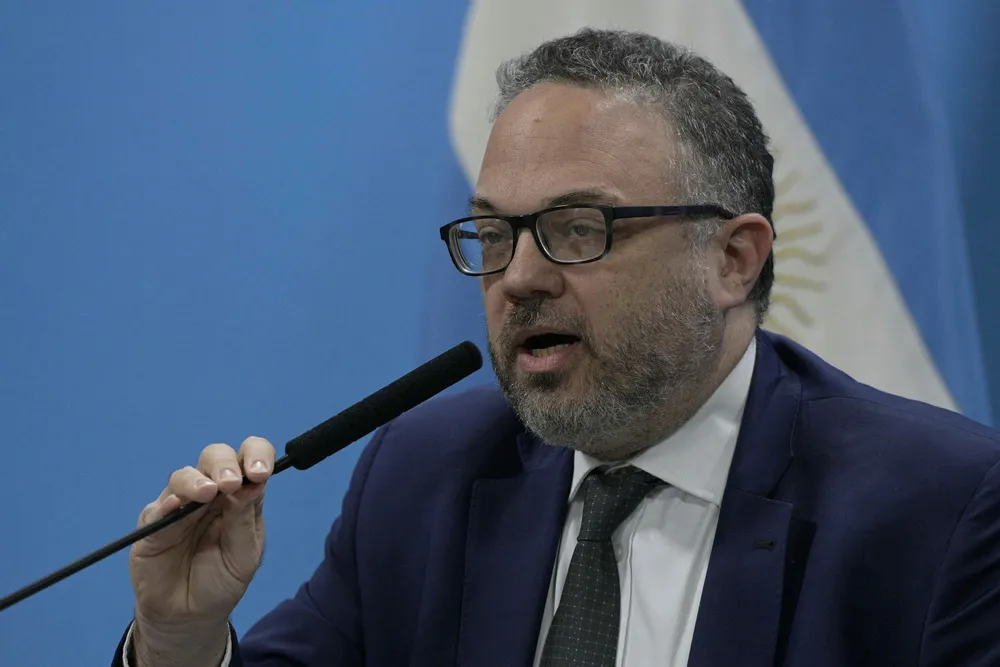Argentina government plans new subsidies for gas production
Argentina is resorting to subsidies again as a new crisis threatens the operational capacity that has been built up in the Vaca Muerta shale play

The Argentine government is planning to launch new subsidies aimed at underpinning upstream investments in the natural gas sector.
The subsidies will resemble earlier versions of the so-called Plan Gas programme and will create a price floor of around $3.5 per million Btu at the wellhead, according to the Buenos Aires-based Econojournal website.
The global collapse in commodity prices has reduced the attractiveness of Argentina’s relatively high-cost unconventional gas production and drilling activity has nosedived in response to the downturn.
Natural gas accounts is the primary source of energy in Argentina, occupying more than half of the country’s energy matrix. But the fallout from the coronavirus outbreak, following on from two years of deep domestic recession, meant that only 10 wells with natural gas as their stated objective were drilled in the first quarter, compared to 47 in 2019.
Argentina also has a stubbornly high rate of inflation but President Alberto Fernandez, a left-leaning Peronist, has been reluctant to relax controls over the end price paid by consumers for their gas due to fears of the impact on the population.
The negative aspects of price-controls are also familiar to the Argentine people however, considering the deleterious effect that such policies had on investment flows into the country’s oil and gas sector. That resulted in the situation, in 2013, where Argentina was importing more than $6 billion worth of liquefied natural gas to fill a growing deficit.
Investments has recovered strongly since then, with production of unconventional oil and gas surging in the Vaca Muerta shale, but the latest downturn has led to the government to sit down with state-controlled YPF and most other leading producers to discuss a “de-coupling” of the link between gas prices at the well-head and those charged to consumers, according to the Econojournal report.
According to Econojournal the new subsidies will be available to companies committing to investments but will be scaled to ensure that domestic gas covers base-load demand, even if this not necessarily the case with the seasonal winter surge in demand.
A similar "Plan Gas" measure introduced in 2013, rewarded incremental production with a price premium, while the first version, introduced in 2008, rewarded investments in new unconventional production.
By reintroducing Plan Gas, Argentina hopes to prevent a new surge in LNG imports at a time when the country's balance of payments is under sharp scrutiny due to ongoing negotiations with creditors aimed at restructuring around $65 billion of foreign debt.
Demand for oil also fell by around half during a Covid-19 lockdown but Argentina last moved earlier this week to establish a local crude oil reference price of $45 per barrel.
Minister of Productive Development Matias Kulfas said government support for crude prices will allows oil sector production and employment to be sustained at levels which will prevent “squandering” of the progress that has been made in the Vaca Muerta shale.
“The greater danger is that when things get back to normal, perhaps in a year, and prices rebound we don’t have production going and we have to import crude,” he said in a radio interview.
A decree implementing the price support measures said the collapse in international oil prices was “seriously damaging the activity of the national hydrocarbon sector.”
The decree added that the measure would be in place until the end of 2020, although the local reference rate would be annulled if the price of Brent crude exceeded $45 for 10 straight days.
The price support is only available if oil companies maintain production and employment at 2019 levels, and include regulations that lower export tariffs on and close arbitrage loopholes.
But the measures may not solve the broader problem of lack of demand, or relieve the plight of smaller producers with limited options for refining and transport.
State-controlled oil company YPF suspended its own purchases of third party crude as soon as Argentina’s lockdown was announced in March.
(Copyright)